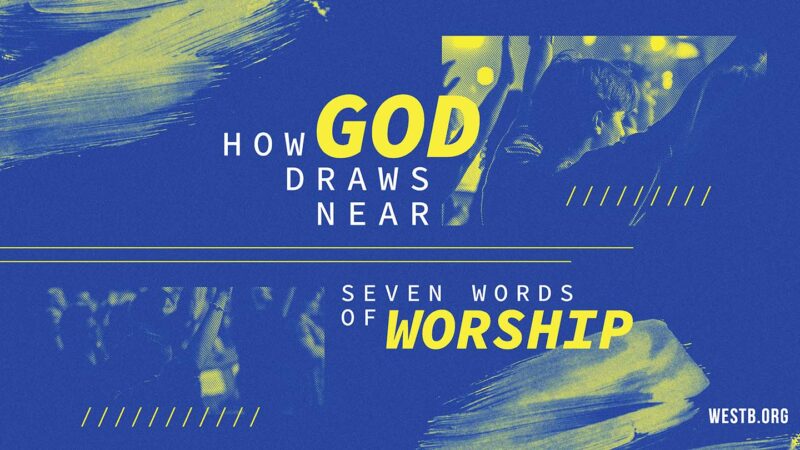How God Draws Near : The Seven Words of Worship: Love
Series: How God Draws Near : The Seven Words of Worship
Sermon Title: Love
Speaker: Sam Rainer
Date: February 16,, 2025
Reflect
- How has your understanding of love changed as you’ve grown older? Did any part of this week’s message change your understanding of love?
- Can you think of a time when you misunderstood what love was, either in a relationship or a situation? As you have grown, what has most improved your understanding of what love is?
Encounter
- Read 1 John 4:7-12. What do these verses say about the relationship between knowing God and loving others?
- How does the cross define love, according to 1 John 4:10 and John’s eyewitness account in the sermon? How is this different from the way our culture might define love?
- Compare 1 Corinthians 13 (the “Love Chapter”) with 1 John 4:7-12. How do these passages complement each other in defining what love is and what love does?
Transform
- How can you reflect God’s love in a specific relationship or situation this week? What might need to change in your approach to love others as God loves us?
- As a group or church, how can we better live out the call to share God’s love with others in our community or the world?
Additional Discussion Questions
- How does the concept of “creativity revealing God’s existence” challenge the way we engage with art, music, and innovation in the world?
- What are some dangers of creativity that is detached from God? How have you seen creativity used in ways that either honor or distort His design?
- The sermon mentions that “the worst art is that which denies the Artist.” How do you interpret that statement? How should this affect our approach to creativity and worship?
Interesting Facts and Tidbits
- The term “love” appears over 750 times in the Bible, emphasizing its foundational role in God’s character and our relationship with Him.
- The New Testament uses four different Greek terms for love: eros (romantic love, not used in the NT), storge (family love, rarely used), philia (friendship love), and agape (God’s unconditional love).
- The word “propitiation” in 1 John 4:10 means “satisfaction of God’s wrath,” showing how Christ’s sacrifice fulfills both God’s love and justice.
Related Passages
- 1 Corinthians 13:4-7 – Provides a poetic description of love’s attributes, emphasizing patience, kindness, and selflessness. This complements 1 John 4’s action-oriented view of love.
- John 3:16-17 – Shows God’s love for the world and Christ’s sacrificial role, tying directly to the sermon’s emphasis on God’s initiative in love.
- Matthew 22:36-40 – Highlights the greatest commandments: to love God and love others, which form the foundation of worship and Christian living.
- Romans 5:8 – Demonstrates God’s love through Christ’s sacrifice “while we were still sinners,” reinforcing the idea of unselfish and persistent love.
- Ephesians 5:1-2 – Calls believers to imitate God’s love by walking in love as Christ did, reflecting God’s love through actions.

